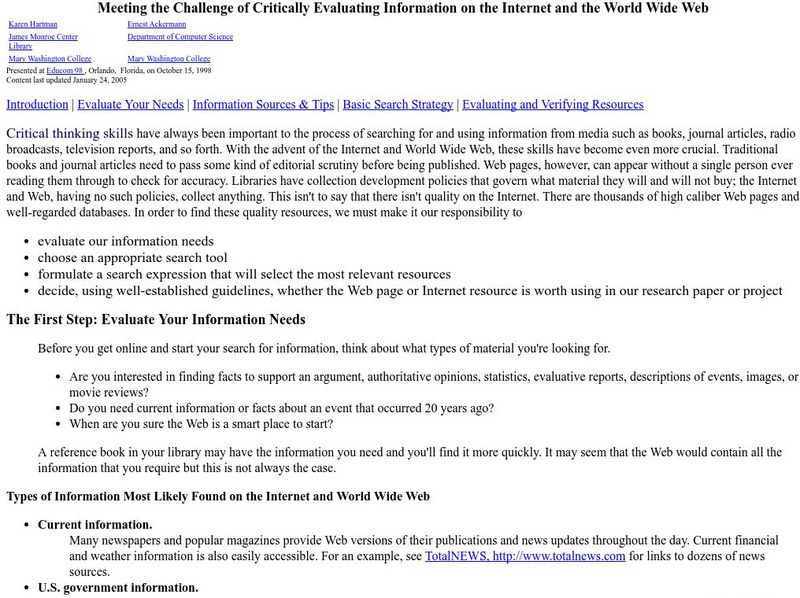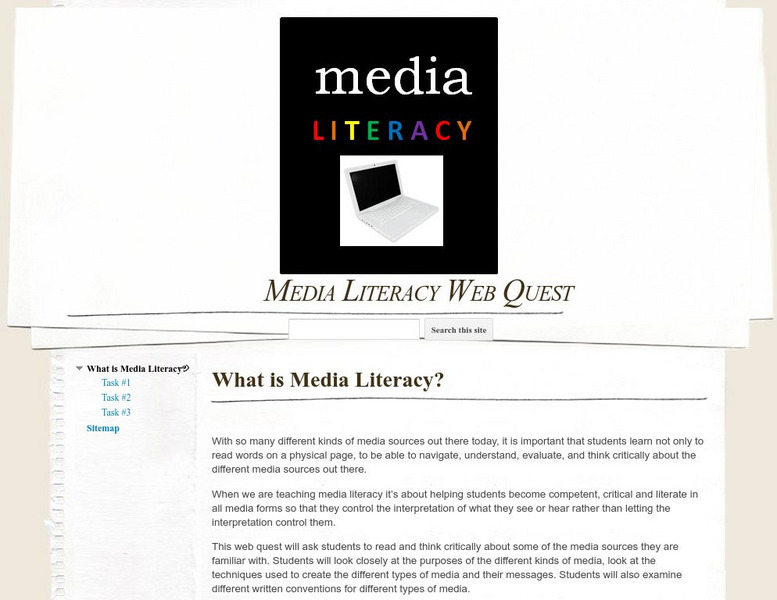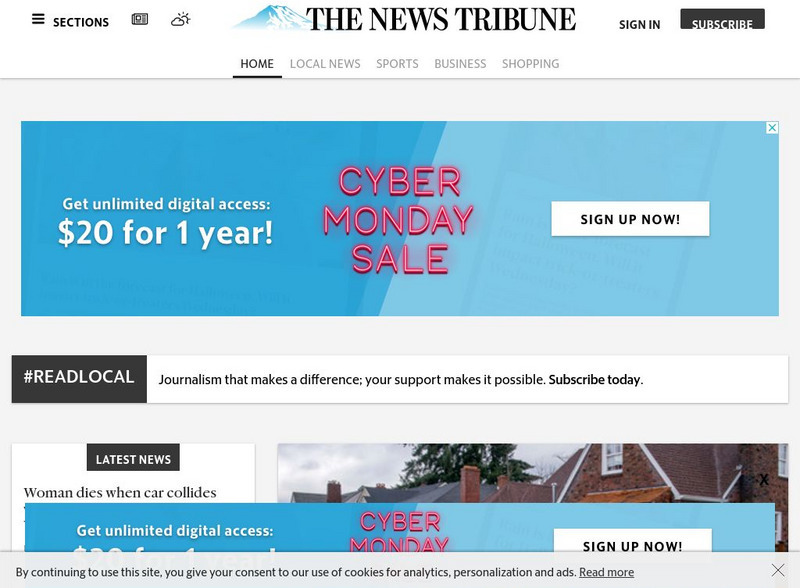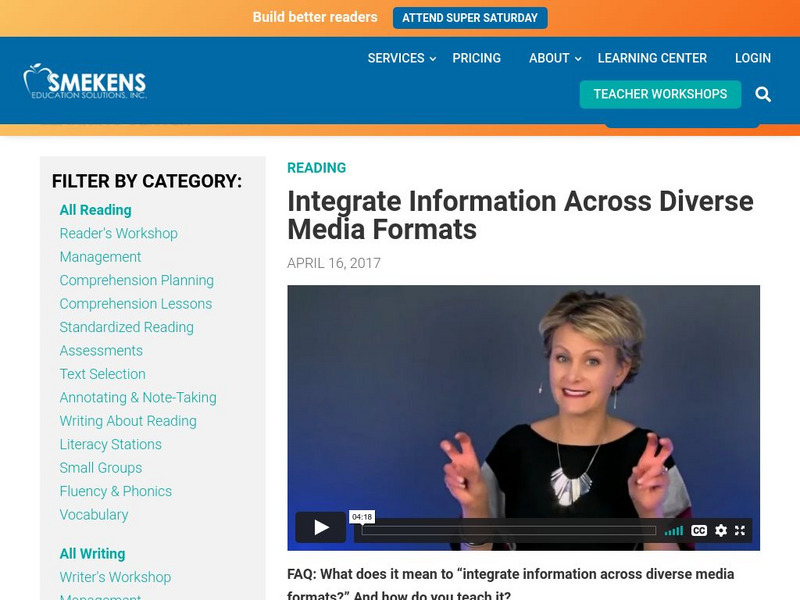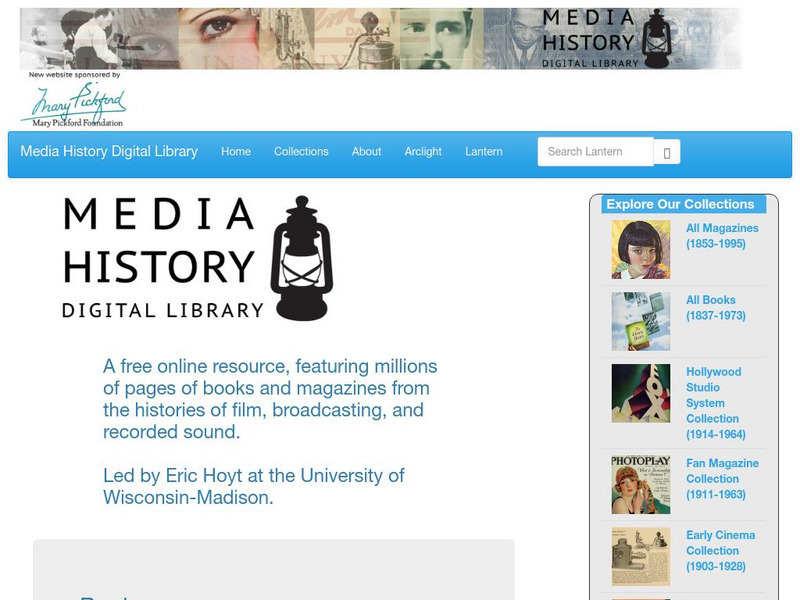Read Works
Read Works: Portrait of a Journalist
[Free Registration/Login Required] An informational text about life as a journalist. A question sheet is available to help students build skills in reading comprehension.
Community Learning Network
Community Learning Network: Journalism Theme Page
This site from the Community Learning Network has great information on the art of journalism. The site is outlined by links for easy navigation and contains a rather exhaustive section on general resources. A great site to check out on...
Other
Society of Professional Journalists: Freedom of Info.
This resource is a great tool for journalists and non-journalists to obtain information from federal and local government sources. Access to this information can make or break a news story.
Other
Santa Rosa Library: How to Evaluate Information Resources
Tips and information about how to evaluate resources, both print and electronic. Includes information about source authority, purpose, objectivity, currency, completeness, and relevance. It includes a printable handout (top right)with...
ReadWriteThink
Read Write Think: Cnn Debuted as the First Television News Network in 1980
These lesson plans relate to the gathering and production of news and creating a visual timeline. There are links to other lesson plan ideas, as well as web links, and a brief bibliography. SL.11-12.2 Eval&Integrate sources
Cyberbee
Cyberbee: Photo Analysis Guide
This site is a guide to help students analyze visual media. Further research questions included.
Other
Media Education Foundation: Deconstructing a Video Advertisement [Pdf]
Handout that leads students through an exploration of the visual and audio elements of a video advertisement as well as the effect these elements have on the intended audience and the community as a whole.
Education Development Center
Tv411: Reading: Parts of a Newspaper
A series of three activities help readers become familiar with parts of a newspaper, from sections to headlines and captions.
Other
Webliminal: Critically Evaluating Information on the Internet
This site gives excellent information on why it's important to evaluate the content of everything you find in cyberspace, and also tells you how to do so. It also contains information about using search engines effectively and how to...
Other
What Is Media Literacy?
This web quest will ask students to read and think critically about some of the media sources they are familiar with. Students will look closely at the purposes of the different kinds of media, look at the techniques used to create the...
Other
Media Activist's Kit for Fairness in Reporting
This site offers the whole package about bias in reporting: what it is, how to identify the source, how to complain about it and be heard, and what to do if all else fails. The site offers an extensive reading list along with detailed...
Other
Ire: Investigative Reporters and Editors
This non-profit group was created in 1975 as a networking tool for the exchange of ideas and attitudes concerning the quality of investigative reporting for the media. Site is newsletter-style with up-to-date information.
Other
The News Tribune
The Tribune is the local daily newspaper publication for the city of Tacoma Washington. The Tribune includes section in news, both local and national, weather, sports, and business.
Lumen Learning
Lumen: Evaluating Sources: Introduction to Multimedia Sources
An introduction to methods of evaluating multimedia sources.
Lumen Learning
Lumen: Introduction to Multimodality
This is an introduction to multimodality including the difference between mode and medium. Click on the Next link.
Other
The Influence of Media Violence on Youth [Pdf]
Useful for papers and research projects about the effects of media violence on youth, this report was published in an academic journal.
Other
Smekens: Integrate Information Across Diverse Media Formats
Read about strategies to help students integrate information across diverse media formats. Includes video. [4:18]
Other
Rhetorica Network: Media / Political Bias
A detailed explanation of how bias works is offered at this site, including critical questions for detecting bias in writing.
Other
Media History Digital Library
The Media History Digital Library digitizes collections of classic media periodicals that belong in the public domain for full public access. The project is supported by owners of materials who loan them for scanning, and donors who...
The Washington Post
Washingtonpost: Rewriting the Rules
Washington Post article dealing with ethics and guidelines of journalists reporting hard news. Provides material for debate and discussion. Interesting article.
University of Nebraska Omaha
University of Omaha: Lesson Plan: Why Do I Want All This Stuff? [Pdf]
This lesson plan addresses consumer demand and advertising. Indicated for grades 3 through 5.
Newspapers in Education
Ni Eonline: Cartoons for the Classroom: Cartoon Analysis Worksheet [Pdf]
Newspapers in Education and the Association of American Editorial Cartoonists developed this instructional activity as a classroom handout to aid lessons in dissecting the visual and verbal messages of political cartoons.
Other
Ten Rhetoric of War Writing Projects
Created by a teacher responding to the events in Kosovo, this list is a great start for a media literacy class project. Good discussion-starting questions are included with each item on the list. Requires some independent research to...
Other
How to Detect Media Bias & Propaganda [Pdf]
A portion of a larger book, this site is critical of journalism as it is presently practiced. This portion offers characteristics of critical news consumers.






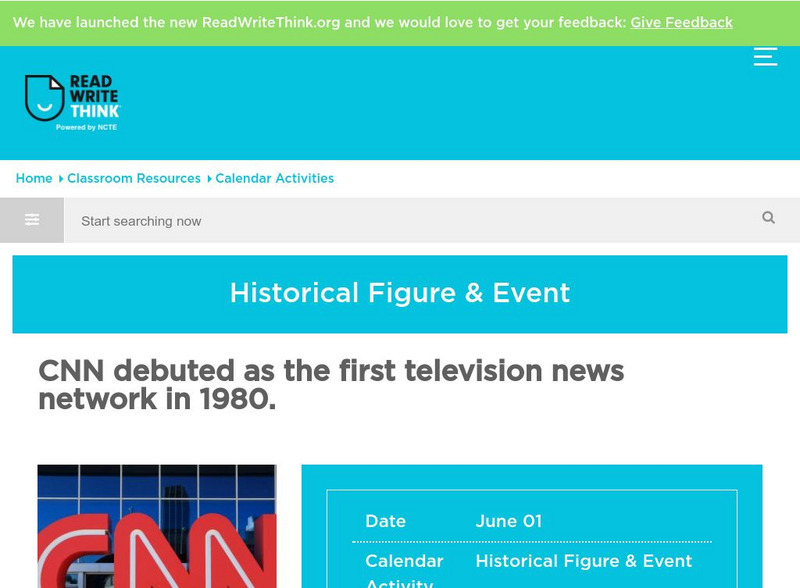
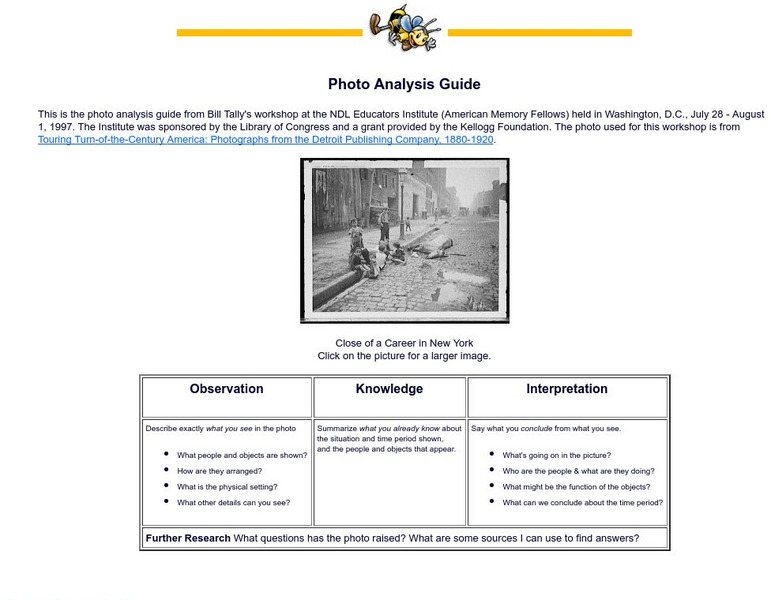
![Media Education Foundation: Deconstructing a Video Advertisement [Pdf] Activity Media Education Foundation: Deconstructing a Video Advertisement [Pdf] Activity](https://d15y2dacu3jp90.cloudfront.net/images/attachment_defaults/resource/large/FPO-knovation.png)

